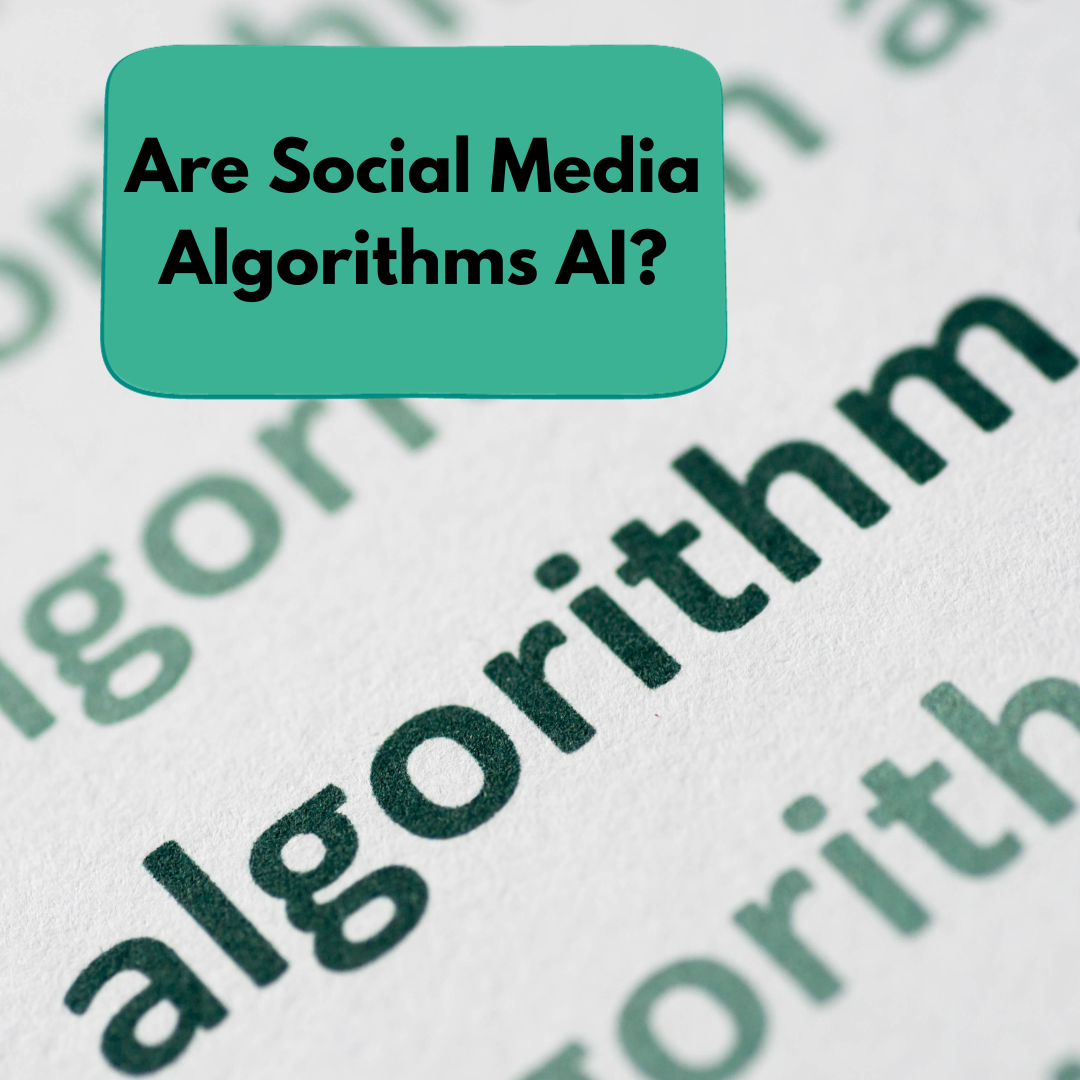In an era where Artificial Intelligence (AI) is seamlessly integrated into various facets of digital…

Are Social Media Algorithms AI?
Are Social Media Algorithms AI?
Social media plays a big role in our daily lives. For businesses, especially smaller ones in Singapore, platforms like Facebook, Instagram, and LinkedIn are crucial for reaching their audiences. When we talk about social media, we often hear the word “algorithm”. But what does it really mean? And does it have anything to do with artificial intelligence (AI)? Let’s take a closer look at this interesting topic.
Understanding Social Media Algorithms
Before we dive into the connection between social media algorithms and AI, let’s first grasp what an algorithm is. In simple terms, an algorithm is like a set of instructions given to a computer. It tells the computer how to perform a specific task. In the realm of social media, algorithms are the rules that dictate what content you see in your feed, the order in which you see it, and which posts get more prominence.
Are Social Media Algorithms Created Using AI?
Yes, social media algorithms often incorporate elements of artificial intelligence. To put it plainly, AI helps these algorithms understand what content is most relevant and interesting to you. Here’s how it works:
1. Personalised Social Media Recommendations
Have you ever noticed that platforms seem to magically know what you’re interested in? This is where AI comes into play. For instance, when you ‘like’ a post about travel, the platform’s algorithm takes note of this. It then uses AI to suggest more travel-related content in your feed. This personalisation is powered by AI’s ability to analyse your behaviour and preferences.
2. Social Media Content Sorting and Prioritisation
Imagine if you followed hundreds of accounts on a platform. It would be overwhelming to see every single post from every account. AI helps by prioritising the content that is most likely to interest you based on your past interactions. For example, if you frequently engage with posts about food and recipes, the algorithm will show you more of this type of content.
3. Identifying Social Media Trends
AI is adept at spotting trends and patterns. This is particularly important for businesses looking to stay relevant and engage their audiences. For instance, if a certain topic or hashtag is gaining traction, AI-powered algorithms can identify this and ensure that relevant content is shown to users who might be interested.
4. Combatting Spam and Inauthentic Activity
These platforms are vigilant about ensuring a positive user experience. AI plays a crucial role in identifying and mitigating spammy or fake accounts. It analyses account behaviour and flags suspicious activity, helping maintain the integrity of the platform.
Real-Life Examples
Let’s take a look at some real-life examples of how these platforms use AI-driven algorithms:
1. Facebook
Facebook employs AI to curate your News Feed. It takes into account your interactions, the type of content you engage with, and even the amount of time you spend on different posts. This information helps determine what you see first when you log in.
2. Instagram
Instagram’s algorithm analyses your behaviour to show you content from the accounts you engage with the most. It also considers the popularity of a post (how many likes and comments it has) when deciding whether to feature it prominently.
3. LinkedIn
LinkedIn utilises AI to recommend posts, articles, and even jobs that align with your professional interests. It takes into account your job title, industry, and the type of content you engage with on the platform.
In conclusion, social media algorithms are indeed influenced by artificial intelligence. AI helps these algorithms understand your preferences, sort and prioritise content, identify trends, and maintain platform integrity. As SMEs in Singapore navigate the world of social media marketing, understanding the role of AI in algorithms can be a powerful tool in creating content that resonates with your audience. Embracing this technology can lead to more effective and engaging social media strategies.



